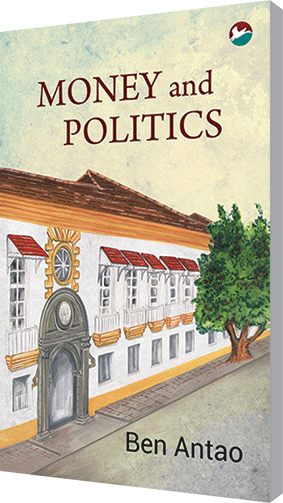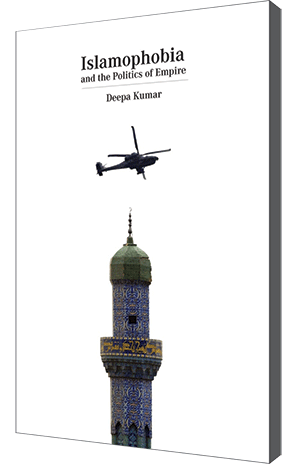Goa morality tale
Money and Politics by Ben Antao; cinnamon teal; Price: Rs.325; Pages: 226
 Ben Antao has tackled the birth of Goan independence with humour and an unrepentant pen. That politics is money is unquestioned in this novel. That politics is business is also boldly stated. And with the events in this tale unfolding in the early 1960s when, for those of us who were raised in a more idealistic time and were led to believe in statesmanship and leadership (Kennedy, Gandhi, Churchill et al) as also altruistic nation-building in a post-WWII era, this book comes as a bit of a wake-up call.
Ben Antao has tackled the birth of Goan independence with humour and an unrepentant pen. That politics is money is unquestioned in this novel. That politics is business is also boldly stated. And with the events in this tale unfolding in the early 1960s when, for those of us who were raised in a more idealistic time and were led to believe in statesmanship and leadership (Kennedy, Gandhi, Churchill et al) as also altruistic nation-building in a post-WWII era, this book comes as a bit of a wake-up call.
The novel is based on true events. The real-life protagonists, Dayanand Bandodkar, a miner, and Jack de Sequeira, a merchant, formed two political parties, the Maharashtrawadi Gomantak (MG) and United Goans (UG) respectively, in the aftermath of the liberation of Goa in December 1961 from Portuguese dictator Salazar by the Indian Army. At the time prime minister Jawaharlal Nehru promised that Goa was free to shape its destiny within India.
The MG party contested the election for ruling the new territory on two pledges: to merge Goa with neighbouring Maharashtra, as most Goans spoke the Marathi language of the larger state, and to return Goan lands back to tillers. The UG, on the other hand, stood for a separate state for Goa within India, with Konkani as the official language, and with land remaining in the hands of existing landholders, many of whom were UG and MG candidates vying to be elected. The MG ultimately won the election, but was unsuccessful in merging Goa with Maharashtra as an opinion poll (more a referendum) held within the tiny territory overwhelmingly called for a separate status.
Within this frame of history, Antao spins his tale. Bandodkar is the fictitious Fondekar and de Sequeira is Gaspar. Both men launch their political parties and campaigns with the complete understanding that only money will buy success. They are blatant in their offerings of ‘help’ to likely supporters, and are equally bullish in obtaining ‘deposits’ from businessmen eyeing lucrative development contracts in Goa when the right political parties come to power.
Their two assistants, Euseb (Gaspar’s) and Vishnu (Fondekar’s), are wily characters. The shady Euseb is always in dark glasses and Vishnu is particularly adept at sussing out potential supporters for his boss’ cause. The third element in this battle is India’s ruling party, the Congress, led by a rather ineffectual local leader, Shankar, who cannot make a decision unless it’s sanctioned by Delhi. Instead of votes, all Shankar is able to collect is money from those same scouting business people who are hedging their bets with every political party in the race.
When the result is declared, with the MG obtaining 14 seats to the UG’s 12, and the other two seats going to independent candidates, the bribery game notches up into high gear to secure a majority, or prevent one. The MG prevails, and Fondekar is proclaimed chief minister with Gaspar as the leader of the opposition.
But the new regime lands in hot water no sooner than it introduces the land reform Bill, for many land-holders are in the ruling party, and ‘exceptions’ have to be made in case members defect and break up the MG’s slim majority. What follows is a travesty of the legislative process. The MG re-introduces a watered-down and more equitable-looking piece of legislation, but makes numerous ‘exceptions’ in the fine print of the new Bill.
Land reform ends in failure, for the tillers with their newly acquired wealth cannot be bothered to work anymore and become landlords themselves, renting their lands to a fresh crop of tillers.
At the end of the novel, which is by no means the end of the ongoing saga of Goan politics, the two rivals stand in a 1-1 tie, for an opinion poll — also fuelled with lots of money to swing voters and further infused with patriotism for Goa remaining Goan — ends in a win for Gaspar.
This volume adds to the growing body of Goan literature in English to which the author has contributed. The style is colonial, Shakespearean in places, reflective of Antao’s education. The dialogue is infused with humour and scenes of Goa are vividly drawn, with the Mandovi river flowing in and out of the narrative.
This is an insightful novel, tempered with humour to make it palatable, for those wanting an inside look into Indian politics, recounted by an individual who had a grandstand view, and who is not afraid to call a spade a spade.
Shane Joseph (The Book Review, December 2015)
Skewed Analysis
Islamophobia And The Politics Of Empire by Deepa Kumar; haymarket books; Price: Rs.922; Pages: 238
This book purports to explore the roots and manifestations of rising ‘Islamophobia’ worldwide, and makes a attempt to counter negative stereotypical images of Muslims and Islam.
Author Deepa Kumar, an academic of Indian origin based in the US, adopts a Marxian approach to the issue of Islamophobia, viewing it solely as a political construct. She argues that negative perceptions of Muslims and Islam are a “mythical creation conjured out of the needs of empire”, and “primarily a tool of the elite in various societies”. Much of the book is devoted to detailing myths and propaganda about Muslims and Islam in Europe, from early medieval times to today.
According to Kumar, the church and European ruling elites have routinely projected a negative picture of Islam and its followers “to advance their political ambitions”. In tandem with the advance of European colonialism in Asia and Africa, these views were pressed into service to legitimise the conquest of Muslim countries. This self-serving propaganda, says the author, is still widespread and propagated by the West in much the same way and for much the same purposes.
The book is heavy with fault-finding but remarkably thin on practical solutions. Kumar focuses her explanations on the roots of Islamophobia and its manifestations in the West. In sharp contrast, there’s not more than a single chapter of a mere seven pages, titled ‘Fighting Islamophobia’. And even in this slim chapter, the only ‘solution’ Kumar offers is street marches and demonstrations of Muslims along with “progressives”, chanting slogans.
Perhaps the author’s failure to suggest sensible and viable steps to combat the movement’s rise is a consequence of the Marxian analytical framework she adopts. Naively concluding that the phenomenon is simply an outcome of the sinister machinations of prejudiced elites in non-Muslim countries, Kumar ignores the fact that perceptions of Islam and Muslims are not unconnected with their medieval social codes, attitudes of a significant number of Muslims, as well as terrorism practised in the name of Islam that has now become a major global threat.
Muslim communal supremacism, intolerance of others and numbing gender injustices in traditional Muslim societies, the religious bigotry and appalling human rights records of many Muslim states, historical wrongs committed by Muslim despots (as in India, for instance), the bone-chilling fatwas issued by self-styled champions of Islam, and indiscriminate terrorism in the name of the faith, have undoubtedly contributed to bringing Islam and Muslims into terrible disrepute. Therefore a great share of the blame for raging Islamophobia must devolve upon a significant section of Muslims themselves, especially many of their political and religious leaders. This is something that Kumar, in her desire to blame the West, completely fails to acknowledge. In doing so, however, she does Muslims no favour at all. Instead, she could have done them a service if she had indicated as a sympathetic outsider, where Islam’s adherents have gone wrong.
Justice demands that Muslims recognise their own central role, their attitudes and behaviour (often a result of gross misinterpretations of Islam) in fomenting Islamophobia.
In particular, with her Marxist interpretation Kumar exasperatingly overlooks narrow, intolerant and rigid misinterpretations of Islam, that have deeply influenced the behaviour of a significant number of Muslim masses, leading to intolerance of followers of other creeds which has reinforced Islamophobia. Some of these (mis)readings of the faith stoke hatred towards other faiths, and women. Such misconceptions are driven by Islamist ideologues with megalomaniac dreams of conquering the world in the cause of jihad.
The following Quranic verse (25:63) contains valuable guidance for Muslims in how they should respond to the challenge of Islamophobia: “The true servants of the Gracious One are those who walk upon the earth with humility and when they are addressed by the ignorant ones, their response is, ‘Peace’”.
Darkness, it is said, has no reality of its own. It is simply the absence of light. Railing and remonstrating won’t dissipate it. All that is needed is to light a little candle of love and goodness and see how far it spreads its light. That’s the way to counter Islamophobia — and any prejudice for that matter.
Roshan Shah















Add comment